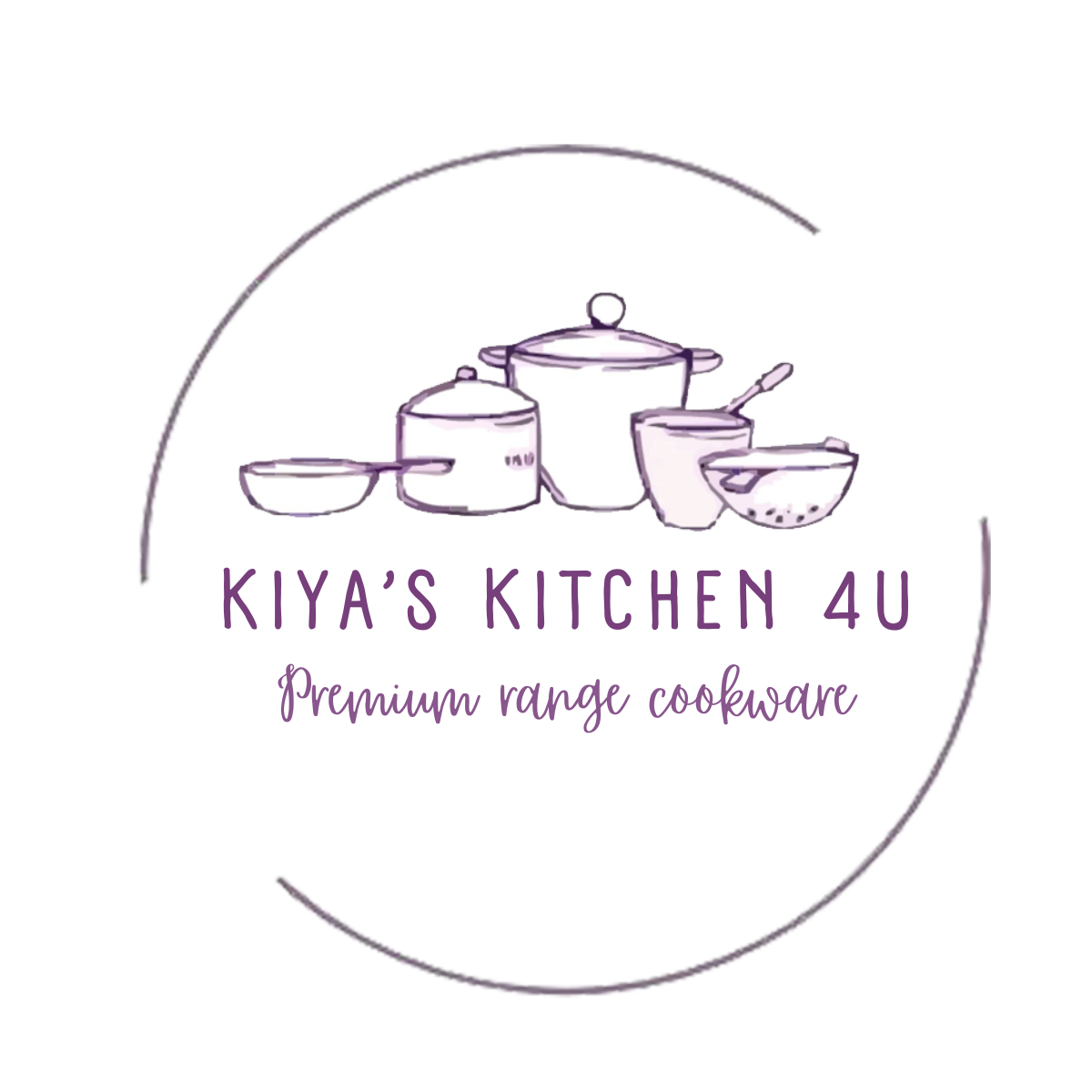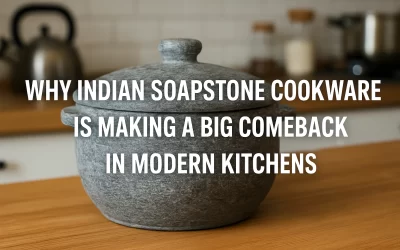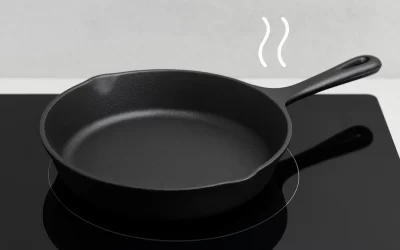Introduction
In today’s fast-paced culinary world, where blenders and electric grinders dominate kitchens, the traditional small stone ural remains a timeless tool for cooking enthusiasts and cultural purists. Whether you’re craving an aromatic masala blend, a smoky herbal chutney, or a slow-simmered curry, the small stone ural can deliver unparalleled flavor and authenticity. But how do you use it effectively? buy soapstone cookware online India.
This guide explores how to use a small stone ural for traditional and flavorful cooking, detailing proven methods and providing expert tips. By the end, you’ll not only understand the cultural roots of this cooking tool but also master its practical use in your modern kitchen.
What Is a Stone Ural?
A stone ural—sometimes referred to as a grinding stone or stone mortar—is a traditional kitchen tool used in many Asian, African, and South American households. Made from heavy natural stones like granite or basalt, the ural is prized for its ability to crush, grind, and cook food without electricity.
These tools date back centuries and have remained popular due to their durability and the flavor-enhancing properties they impart to food. In fact, using a stone ural can elevate a simple dish into something complex and memorable.
Why Choose a Small Stone Ural?
While large stone urals are commonly used in communal or industrial kitchens, a small stone ural is ideal for personal or household use. Here’s why:
Portability and Storage
Small stone urals are easier to move and store. You won’t need a dedicated countertop or large storage unit. Plus, they fit comfortably in small kitchens and urban apartments.
Ideal for Small Batches
You can grind just the right amount of spice or paste for one meal, ensuring freshness and minimizing waste. It’s perfect for:
- Homemade spice blends
- Herbal medicines
- Single-serve sauces or dips
Additionally, the smaller size makes it easier to clean and maintain, which is perfect for daily use.
Types of Stone Urals
Before diving into cooking, it’s important to know the types of stone urals available:
| Stone Type | Properties | Best Use |
|---|---|---|
| Granite | Durable, heavy, retains heat | General cooking, grinding |
| Soapstone | Softer, less abrasive | Herbal pastes, smoking |
| Marble | Aesthetic, lighter | Cold dishes, grinding spices |
| Basalt | Very hard, volcanic origin | Cooking over flame, roasting |
Choose based on your cooking goals and comfort. Granite is a versatile and popular option for most home cooks.
Seasoning Your Small Stone Ural
Seasoning a stone ural is essential before its first use. This process helps remove stone dust and strengthens the surface. Here’s how:
- Rinse Thoroughly: Wash with warm water—no soap!
- Grind Rice: Crush a handful of raw rice to absorb debris.
- Repeat: Do this 2–3 times until rice powder looks clean.
- Grind Garlic or Turmeric: These natural antibacterials also help remove odors.
- Air Dry: Let it dry naturally in a shaded area.
Pro Tip: Avoid drying under direct sunlight to prevent surface cracks.
Safety Tips When Using a Stone Ural
Stone urals are extremely durable, but safety should always come first:
- Use a Stable Surface: Place it on a non-slip mat or damp cloth to prevent sliding.
- Handle Carefully When Hot: Use thick cloth or gloves if using over flame.
- Avoid Soap: Soaps can leave residue—clean with hot water and a stiff brush.
- Store Properly: Keep it dry to prevent mold growth.
Taking a few precautions ensures a safe and long-lasting experience.
7 Proven Cooking Techniques Using a Small Stone Ural
1. Dry Roasting Spices
Dry roasting in a stone ural releases natural oils and deepens flavor. Heat the ural lightly, then roast:
- Cumin seeds
- Coriander seeds
- Mustard seeds
Gently stir with a wooden spatula until fragrant, then grind for use.
2. Grinding Pastes for Curries
A paste made by hand in a ural has unmatched texture. Ideal ingredients include:
- Garlic
- Ginger
- Green chilies
- Onions
Add a pinch of salt to help break down fibers. The friction from the stone brings out deep flavors without needing oil or water.
3. Preparing Herbal Blends
Stone urals are fantastic for making:
- Ayurvedic pastes
- Tulsi and honey mixtures
- Medicinal root blends
This method retains all the nutrients, unlike machine grinding.
4. Cooking Over Open Flame
Place your small ural on a flame-safe stand and heat it slowly. Add ingredients like:
- Marinated meats
- Mixed vegetables
- Spiced tofu
The stone retains heat evenly, allowing slow, deep cooking.
5. Simmering Broths & Stews
The thick stone walls act like a Dutch oven. Once heated, it maintains a constant simmer—perfect for:
- Lentil soups
- Bone broths
- Slow-cooked beans
6. Making Flatbreads
Though unconventional, some use the flat surface of a stone ural as a griddle. Just heat and cook small breads like:
- Rotis
- Flatbreads
- Tortillas
7. Smoking Ingredients
Burn herbs like rosemary or sage beneath the ural. Cover food inside for a subtle smoky flavor. This method works great for:
- Paneer
- Cheese cubes
- Tofu or mushrooms
Cleaning and Maintenance Tips
- Rinse Immediately After Use: Prevents food from sticking.
- Use a Hard Brush: Helps remove bits from porous stone.
- Dry Thoroughly: Avoids mold and cracks.
- Apply Oil Occasionally: Helps maintain surface integrity.
- Avoid Detergents: Stick with natural cleaners like vinegar or lemon if needed.
Common Mistakes to Avoid
- Using Metal Utensils – They can chip the stone.
- Overheating the Ural – It may crack under rapid heat.
- Ignoring Seasoning – Can lead to food contamination.
- Washing with Soap – Ruins the flavor of future dishes.
- Using for Cold Storage – Not designed for chilling.
Recipes to Try with a Small Stone Ural
🌶️ Spicy Coconut Chutney
- Grated coconut
- Green chilies
- Garlic
- Curry leaves
- Salt & lemon juice
Grind to a smooth paste for an authentic South Indian touch.
🍛 Classic Curry Paste
- Ginger
- Garlic
- Onion
- Red chili
- Coriander seeds
Use for base curry recipes from India or Sri Lanka.
🍲 Stone-Simmered Lentil Soup
- Masoor dal
- Garlic paste
- Tomatoes
- Spices
- Fresh coriander
Simmer in the stone ural for a hearty, flavorful dish.
Frequently Asked Questions (FAQs)
1. Can I use soap to clean my stone ural?
No. Soap leaves residues that can alter the taste of your food.
2. How often should I season my ural?
Season before first use and occasionally afterward if it shows signs of wear.
3. Is a small stone ural suitable for cooking meat?
Yes, especially for marination and slow cooking over low heat.
4. Can I use it for cold recipes?
Yes, but avoid using it for refrigeration or storing cold items.
5. How long does a stone ural last?
With proper care, it can last decades—even a lifetime!
6. Where can I buy a small stone ural?
Check local ethnic stores, specialty kitchen shops, or sites like kiyas kitchen.
Conclusion
Learning how to use a small stone ural for traditional and flavorful cooking is more than just picking up a kitchen skill—it’s about reconnecting with centuries-old culinary wisdom. Whether you’re preparing spices, simmering stew, or crafting a paste, this humble tool enhances every bite with authenticity and depth. Now that you know the techniques, it’s time to dust off that ural—or buy one—and begin your stone-cooked culinary journey.





0 Comments